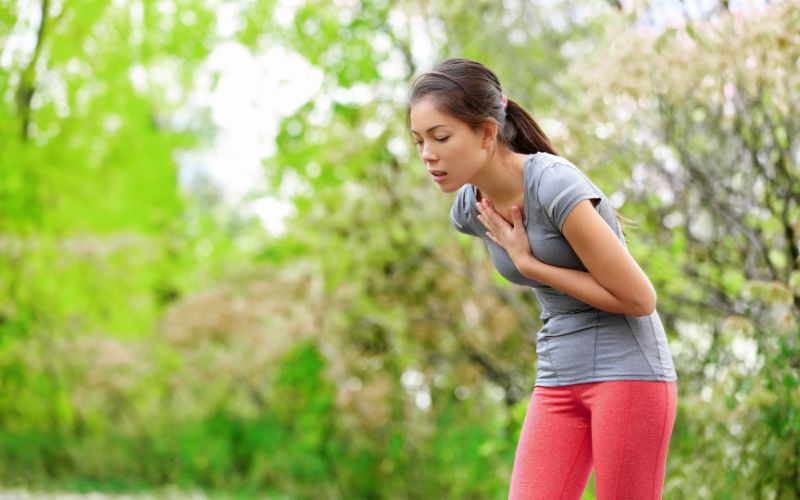Summer is a prolonged period of hot and dry weather, which can lead to a drier throat and respiratory issues. This is one of the reasons why many people suffer from respiratory illnesses during this season. So, what can we do to prevent this? Let’s find out!
1 Why Are Respiratory Infections More Common in Summer?
As summer approaches, the following factors can contribute to an increase in respiratory infections:
-
Hot and humid weather provides an ideal environment for bacteria and viruses that cause respiratory illnesses to thrive.
-
The use of air conditioning is more prevalent during hot weather, but maintaining a large temperature difference between indoors and outdoors for extended periods can dry out the mucous membranes in the nose and throat, leading to respiratory inflammation. Sudden temperature changes (such as going in and out of air-conditioned rooms) can also weaken the immune system of the respiratory tract, increasing the risk of infections.
-
Under the scorching sun, people tend to consume cold food and drinks and take cold showers immediately after returning home despite still sweating.
-
The summer heat can lead to excessive sweating, disrupting daily diet and routine. This can weaken the immune system and make individuals more susceptible to respiratory illnesses.
 Why Are Respiratory Infections More Common in Summer?
Why Are Respiratory Infections More Common in Summer?
2 Common Summer Respiratory Illnesses
Here is a list of common respiratory illnesses that are more prevalent during the summer:
-
Pneumonia
-
Sinusitis
-
Pharyngitis
-
Bronchitis
-
Other conditions such as asthma, chronic obstructive pulmonary disease, and bronchiectasis.
 Common Summer Respiratory Illnesses
Common Summer Respiratory Illnesses
3 How to Prevent Summer Respiratory Illnesses
-
Drink 2-3 liters of water daily, spread throughout the day.
-
Ensure a nutritious diet, including vitamins and minerals, and incorporate immune-boosting foods.
-
Avoid ice-cold drinks, carbonated beverages, and alcohol. Instead, opt for room temperature or warm water as the best choices during summer.
-
Develop a daily exercise routine, preferably in the early morning or cooler afternoon. Avoid outdoor activities during the hottest part of the day, typically from 10 am to 2 pm.
-
If you’ve been out in the heat, refrain from taking a cold shower immediately and avoid entering an air-conditioned room to prevent heat shock.
-
When using air conditioning, maintain a temperature between 26-28°C (79-82°F) and avoid direct airflow on your body. Limit your time in air-conditioned spaces to prevent drying out your nasal and throat mucous membranes.
-
Stay up to date with vaccinations to protect against certain viral infections.
Respiratory illnesses often present with symptoms such as coughing, fever, shortness of breath, and chest tightness. If you experience any of these symptoms, seek medical attention promptly for timely treatment.
 How to Prevent Summer Respiratory Illnesses
How to Prevent Summer Respiratory Illnesses
This article has provided insights into common summer respiratory illnesses and prevention methods. By following these tips, you can effectively protect your health and that of your loved ones. Stay informed and take care of yourself this summer!
Source: Health and Life Newspaper

































